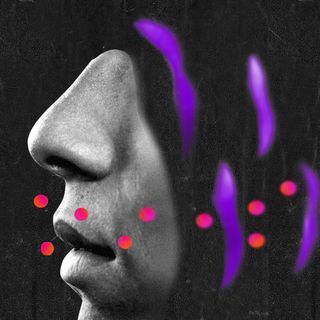
How Early Sexual Experiences Can Shape Healthy Sex Lives in Adulthood
“Those with an earlier sexual debut had fewer sexual difficulties [with orgasms, desire, arousal and sexual satisfaction], and therefore, healthier sexual function.”

Encouraging young people to refrain from sex is the mainstay of our culture that treats the subject as taboo. But while abstinence might work as a short-term tool to keep adolescents from experiencing their sexuality, in the long term, it is detrimental to their sex lives in adulthood, according to a new study that challenges a lot of society’s beliefs around sex.
There’s cultural and social anxiety around the first time a young person has sex. “Research has traditionally cast first sexual intercourse as a young person’s sexual debut and focused on the public health concerns that it raises — documenting its onset, its causes, and its consequences as a problem behavior not unlike adolescent drinking and drug use… As a result, there’s this long body of evidence linking an earlier sexual debut to adverse sexual health outcomes,” noted lead author Diana Peragine from the department of psychology at the University of Toronto Mississauga. According to her research, though, linking an early sexual “awakening” with adverse sexual complications doesn’t hold; instead, it can, in fact, shape a healthy sex life in one’s later years.
Moving on from the “traditional” line of research on the subject, Peragine decided to investigate whether an early sexual debut had any positive outcomes on people. In order to do so, the researchers also expanded the definition of sexual debut beyond just sexual intercourse — including other significant sexual firsts in a person’s life, like first sexual contact, first sexual stimulation, and first orgasm. Basically, rather than focusing just on the act of penetration, Peragine and her team chose to look at sexual experiences more holistically.
Published in The Journal of Sexual Medicine, the study involved more than 3,000 adults. The researchers gathered data on their respective ages of sexual debut, and also assessed their sexual history in the four weeks leading up to the survey. The results suggested that people with earlier sexual experiences fared better in their sex lives than those whose first sexual experience came later in life. “Those with an earlier sexual debut had fewer sexual difficulties [with orgasms, desire, arousal, and sexual satisfaction], and therefore healthier sexual function[ing],” Peragine summed up.
Related on The Swaddle:
How Novels Have Shaped Women’s Understanding of Sex in the Absence of Sex Education
What is “early,” though, remains undefined — differing, perhaps, across countries and cultures. It could refer to sexual experiences before marriage, or even before the age of consent. For the participants in the present study, the average age at the time of their respective first intercourses was 17 — but the researchers, of course, dug deeper in terms of evaluating their sexual debut and found that 93% of the participants had made their sexual debut before engaging in their first intercourse. What makes this especially relevant is that prior studies, including one from just a decade back in 2012, had found that people who begin engaging in intercourse later may have a greater likelihood of finding themselves in safer, more stable relationships in adulthood.
“Individuals who first navigate intimate relationships in young adulthood, after they have accrued cognitive and emotional maturity, may learn more effective relationship skills than individuals who first learn scripts for intimate relationships while they are still teenagers,” Paige Harden, a psychologist and behavior geneticist at the University of Texas at Austin, who authored the 2012 study, had explained.
It’s not certain whether the results of prior studies reflect biases, if any, on part of the researchers. But what emerges upon a reading of both is the need to come up with ways to ensure adolescents aren’t forced to repress their sexuality without necessarily encouraging intercourse. Rather than teaching them complete abstinence simply because it’s not the “right time,” one could, perhaps, teach them to navigate sexuality in a safe and healthy manner when their hormones begin to kick in.
“Abstinence-only education… stresses that no sexuality is healthy sexuality for adolescents. Our findings not only contradict this view, but [also indicate] that efforts to delay sexual activity may carry a risk themselves, [and] might even be detrimental to young people’s sexual health in the long run — at least, with respect to the capacity for functional and healthy sex,” Peragine explains.
Related on The Swaddle:
Orgasming Less Often Can Make Women Give Up Trying, Widening the ‘Orgasm Gap’
And, indeed, her words make sense. Past research has shown that when one is exposed to social conditioning that paints anything remotely sexual as immoral or shameful it can result in sexual repression that leads people to feel guilty and ashamed about even experiencing sexual desires. “I grew up in a household where sex was not talked about and [was] considered taboo. It is very difficult to understand how to operate as a male when you are told your urges are [sins] and you need to hide them. Never had the talk, was never advised on how to treat women. It was trial and error,” a Reddit user wrote, adding, “Let’s just say it was a horrible experience.”
Not only that, but as the researchers found, early exposures to sexual experiences — like an orgasm, for instance — actually bolstered people’s sexual excitability. Unfortunately, as Peragine pointed out, women often tended to have such experiences after men, with the delay translating into “women’s higher rates of sexual desire and arousal disorders compared to men. ”
Last month, The Swaddle also spoke to L., a 23-year-old woman from India, who had a similar upbringing to the Reddit user. It resulted in her feeling “out of place” and “disconnected” with her body during sexual intercourse with her partner, as an adult. She says, “[I] find it extremely difficult to see sex as something normal, and something that has to be done with me… [Instead] I still see it as something done to me.”
Therein lies the merit of the present study. While future research, non-biased on the subject might enable us to develop a better understanding of how early sexual experiences can, contrary to popular (read: traditional) belief, bear positive outcomes. In the meantime, though, the lesson learned here is something anecdotal evidence like people from L. had been hinting at forever: it’s time to stop treating sex as a taboo topic and, instead, treat it as a natural, healthy bodily function while teaching adolescents ways to navigate it safely.
Devrupa Rakshit is an Associate Editor at The Swaddle. She is a lawyer by education, a poet by accident, a painter by shaukh, and autistic by birth. You can find her on Instagram @devruparakshit.
Related


Our Brains Build up a Toxic Chemical After Stressful Work. Fatigue May Protect Us From It.
